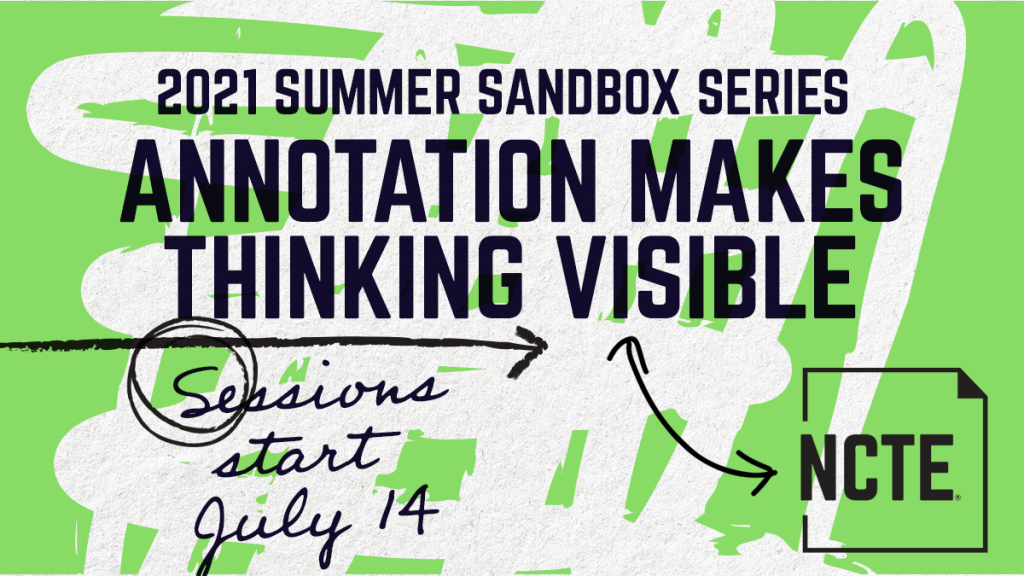July 14–August 4, 2021
Wednesdays from 4 to 5:30 p.m. ET
You annotate. And so do your students. From cookbooks and poetry, to essays and images, annotation is how learners mark up and make meaning with the texts and contexts of their lives. Annotation—or the addition of notes to texts—not only aids students’ reading comprehension and collaborative learning, it can be both playful and a means of speaking truth to power. As an everyday literacy practice, annotation is prevalent and consequential in your classroom, across social media, and among civic settings as students read and write their learning journeys.
In this Summer Sandbox, NCTE members are invited to explore historic, creative, civic, and disciplinary qualities of annotation. You will learn to use a new technology developed by the Library of Congress that features curated items from the library’s collections. This public tool will enable you and your students to engage with primary sources through annotation. Learn about the power of annotation from experts and then annotate a medieval manuscript, Maya Lin’s Vietnam Veteran War Memorial Proposal, and Zora Neale Hurston’s Proposed Recording Expedition into the Floridas. The resource-rich sandbox will include hands-on experimentation and opportunities for you to connect annotation with classroom practices that support your students’ critical and media literacies.
Each of the four 90-minute sandbox sessions will include three parts. The first part of every session will provide participants with context, or background information and resources, about an aspect of annotation. This introduction will feature a special guest or member of the facilitation team, and will present a perspective on annotation along with information specific to the session theme. The second part of every session will include hands-on opportunities for participants to create using various technologies, be playful, and collaborate with peers. Whether a participant creates individually or in a small group, educators will be supported to experiment with annotation tools and practices, and to also produce curricular resources and activities about annotation. The final part of every session will guide participants to connect annotation perspectives and practices to classroom teaching and learning. These discussions will establish practical connections to educator pedagogy, literacy curricula, future sandbox sessions, and possible participation in longer-term professional learning efforts.
2021 Summer Sandbox sessions are free for NCTE members and nonmembers. Please note that you must register separately for each session.
Wednesday, July 14, 2021 at 4 p.m. ET
Across centuries, cultures, and literary contexts, learners have made their knowledge visible through a synthesis of reading, mark-making, and handwritten communication. Our summer sandbox begins with an exploration of historic annotation as your facilitators—Courtney, Jaime, Antero, and Remi—are joined by Stephanie Stillo, curator of the Lessing J. Rosenwald Collection in the Rare Book and Special Collections Division of the Library of Congress. Stillo will share an overview of antiquarian annotation practices and dive deep with a mnemonic from the fifteenth century. Participants will then join small groups to annotate items using the Library of Congress’ new Speculative Annotation technology, with an option to learn more about Library resources and apps. The session will wrap with a discussion connecting our activities to literacy education curricula and classroom practices.
Featured Speaker

Stephanie Stillo is the curator of the Lessing J. Rosenwald Graphic Arts Collection in the Rare Book and Special Collection Division at the Library of Congress. After earning her PhD in the Early Modern Atlantic World from the University of Kansas, Stillo served as the Mellon Professor of History and Digital Humanities at Washington and Lee University. There she taught classes on digital exhibition and design, public history, and digital storytelling. She also served as a CLIR/Mellon fellow in the Library of Congress’ Preservation, Research and Testing Division, researching how preservation technology can reveal important historical information about the Library of Congress’s rare book collection.
Watch the Recording
Wednesday, July 21, 2021, at 4 p.m. ET
Annotation is an aesthetic practice that makes multimodal expression visible. Our summer sandbox continues with an exploration of creative annotation. Courtney McClellan, Innovator in Residence at the Library of Congress, will both co-facilitate our session and serve as featured speaker. McClellan will share a close-read, critical-inquiry method from studio art critique. First-time and returning participants will then join small groups to annotate items using the Library of Congress’ Speculative Annotation technology, with an option to also learn more about the Library resources and apps. The session will conclude by discussing how our activities connect to literacy education curricula and classroom practices.
Featured Speaker
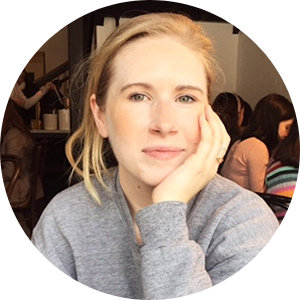
Courtney McClellan is the 2021 Innovator in Residence at the Library of Congress. She is a research-based visual artist who lives in Atlanta, Georgia, and works in a range of media including sculpture, performance, photography, and writing. In subject, McClellan’s work addresses speech and civic engagement. She has served as studio art faculty at Virginia Commonwealth University, the University of Georgia, and Georgia State University. Most recently, she was the 2019–2020 Roman J. Witt Artist in Residence at the University of Michigan.
Watch the Recording
Wednesday, July 28, 2021, at 4 p.m. ET
Annotation can help learners to read and write their world. Our third sandbox session explores civic annotation with Jen Reidel, Library of Congress Teacher in Residence. Jen will share student annotation and analysis of Congresswoman Patsy Mink’s notes for her speech to the Democratic National Convention in 1960. This student work highlights how one person’s words represent American civic ideals. First-time and returning participants will then join small groups to annotate items using the Library of Congress’ Speculative Annotation technology. Participants who have attended multiple sessions may also choose to create curricular resources about annotation. The session will conclude by discussing how our activities connect to literacy education curricula and classroom practices.
Featured Speaker

Jen Reidel is a social studies teacher with a passion for teaching US History and Civics. She taught 19 years in the Lynden School District in a rural high school and currently teaches at Options High School, a public alternative school in the Bellingham School District in Bellingham, Washington. She has been a James Madison Memorial Fellow, an American Civic Educator Award recipient (2014), the Civics Teacher in Residence for the Library of Congress, (2019-2020), and a Washington State Golden Apple Moment Award winner (2021). She has been in the field for 25 years and is committed to helping students engage with the past, understand their communities, and improve their futures.
Watch the Recording
Wednesday, August 4, 2021, at 4 p.m. ET
Annotation supports learners and their academic inquiry. Our final sandbox session explores disciplinary annotation as we are joined by Dr. Josh Levy, Library of Congress Historian of Science and Technology, and Karen Femia, Library of Congress Senior Archives Specialist. They will share historic items from arctic explorers Edith and Finn Ronne and the astronomer and educator Maria Mitchell, and will focus on how annotation can help learners read with research. Participants will then join small groups to annotate items using the Library of Congress’ Speculative Annotation technology, with returning participants encouraged to create curricular resources about annotation. Our summer sandbox ends with participants sharing their annotated items, curricular activities and resources, classroom connections, and plans for using Speculative Annotation during the coming school year. Participants will also be invited to join longer-term professional learning opportunities.
Featured Speakers
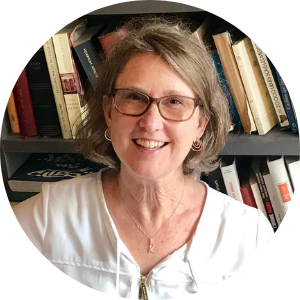
Karen Linn Femia is a senior archives specialist in the Manuscript Division of the Library of Congress. She graduated from SUNY Fredonia in 1979 with a degree in music education and taught K-12 students for several years. She attended Brown University where she earned a PhD in ethnomusicology. She came to Washington, DC with a fellowship from the Smithsonian, and after the fellowship she began her first archival job at the American History Museum. She is the author of That Half-Barbaric Twang: The Banjo in American Popular Culture (University of Illinois Press, 1991). She joined the Library of Congress’ Manuscript Division in 1991, where she is now celebrating 30 years of digging through collections of letters, diaries, photographs, drafts of writings, and memorabilia in order to identify, organize, and describe, so that researchers and the public can have access to these materials.
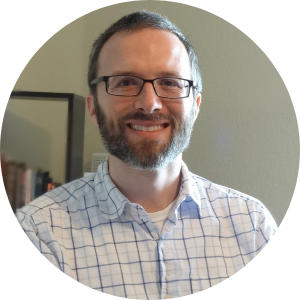
Josh Levy is the historian of science and technology at the Manuscript Division of the Library of Congress. His research interests lie at the intersection of science and technology studies and global indigenous history, and his current manuscript project traces the transformation of a Pacific Island’s indigenous food system over the course of four colonial regimes. He has taught at the University of Illinois at Urbana-Champaign, University of South Florida, College of Micronesia-FSM, and Pohnpei Island Central School. He is the author of a high school-level Micronesian Civics textbook, Micronesian Government: Yesterday, Today, and Tomorrow.
Watch the Recording
2021 Summer Sandbox Facilitators

Courtney McClellan is the 2021 Innovator in Residence at the Library of Congress. She is a visual, research-based artist who lives in Atlanta, GA, and works in a range of media including sculpture, performance, photography, and writing. In subject, McClellan’s work addresses speech and civic engagement. She has served as studio art faculty at Virginia Commonwealth University, the University of Georgia, and Georgia State University. Most recently, she was the 2019–2020 Roman J. Witt Artist in Residence at the University of Michigan.
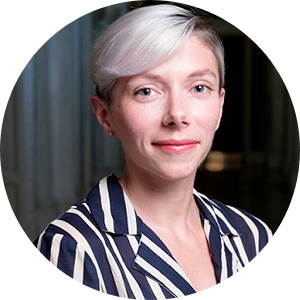
Jaime Mears is a Senior Innovation Specialist at the Library of Congress Labs, where she supports research and experiments to connect the Library to users. She leads the Innovator in Residence program, a creative research residency for artists, technologists, and scholars. Prior to working in libraries, Jaime taught English as a second language to elementary and middle school students in South Korea and China.
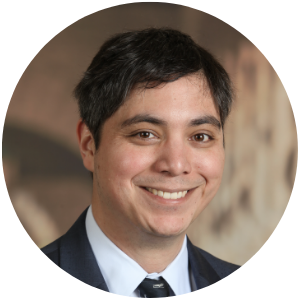
Antero Garcia is an assistant professor in the Graduate School of Education at Stanford University. His work explores how technology and gaming shape learning, literacy practices, and civic identities. Prior to completing his PhD, Antero was an English teacher at a public high school in South Central Los Angeles.

Remi Kalir is an assistant professor of learning design and technology at the University of Colorado Denver. He studies how social annotation enables collaborative, open, and equitable learning. Remi is a cofounder of the Marginal Syllabus and was a middle school teacher in New York City.
Each 2021 Summer Sandbox session requires a separate registration. Registrants will receive email confirmations with Zoom access information 24 hours before the session and one hour before the session.

